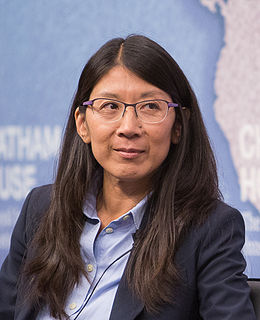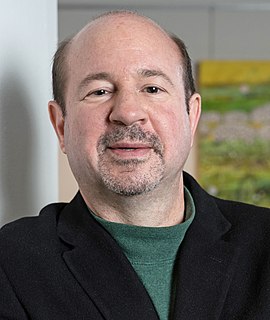A Quote by Tom Steyer
Climate change carries implications that stretch far beyond extreme weather, however. The effects on public health are far more alarming - and those have to be taken into account in order to calculate an accurate estimate of the costs of inaction.
Related Quotes
First, climate change is the greatest long-term threat faced by humanity. It could cause more human and financial suffering than the two world wars and the great depression put together. All countries will be affected, but the poorest countries will be hit hardest. Secondly, the costs of inaction far outweigh the costs of action.
The signs of climate change are visible across the nation, from the drought-stricken fields of Central California to the flooded streets of Michigan. Extreme weather is turning people's lives upside down and costing communities millions of dollars in damaged infrastructure and added health care costs.
I've obviously come from a health background. I was a doctor before I became a pollie and one of the things I'd like to do is to really build on the world-class health system we've got. I'm passionate about climate change because it's also a health issue. Things like extreme weather impact on people's health, the ability of our hospitals to cope, the impact on mental health, on farmers in regional areas - they're all serious health concerns.
There's real economic costs to climate change - So, Superstorm Sandy led to billions of dollars in damages. The fires out in the west, 70 million dollars a day are being spent in fighting fires that have clearly been exacerbated by drought and climate change. So, people have pointed out the true dollars and cents cost of inaction on climate change.
...the world needs to face up to the challenge of climate change, and to do so now. It is clear that climate change poses an urgent challenge, not only a challenge that threatens the environment but also international peace and security, prosperity and development. And as the Stern report showed, the economic effects of climate change on this scale cannot be ignored, but the costs can be limited if we act early
But here's the ugly truth: nature doesn't care about democracy, or who's right, or what's fair. And because of the slow-change aspect of climate, we can't wait until the worst effects are upon us to make a decision -- by then, it would be far, far too late. The scenario we may be faced with is one where doing something for the wrong reasons, run by the wrong people, may still save more lives than holding out for a more appealing option.
With climate change and health crises rightfully receiving international attention, the time has come to focus on hunger as a top priority. WHO regards hunger and malnutrition as the gravest threat to public health, and climate change threatens to further destabilise already fragile food-production systems.



































